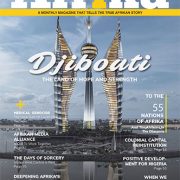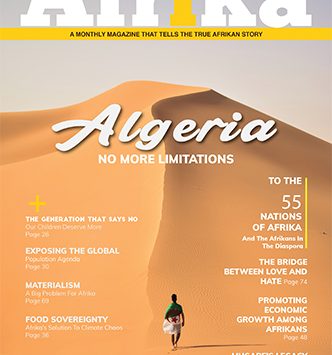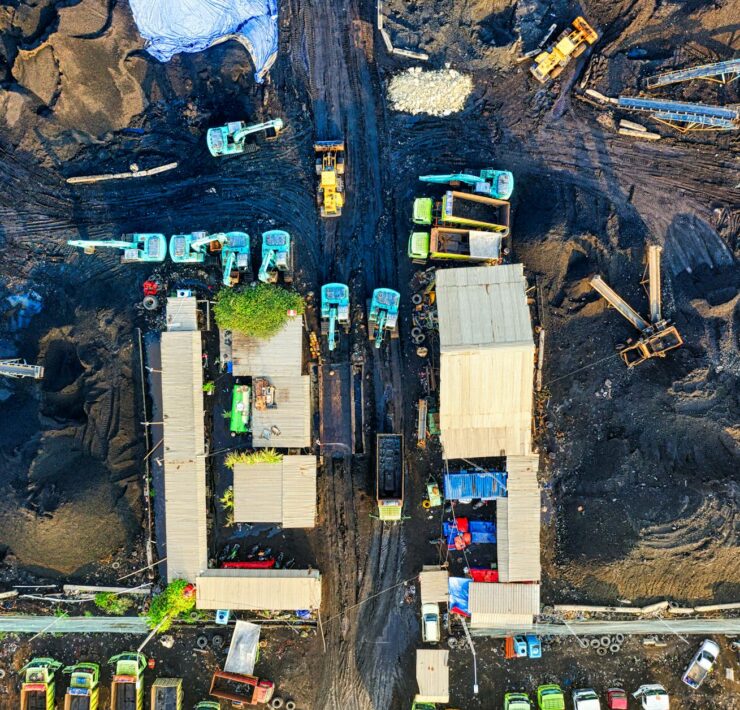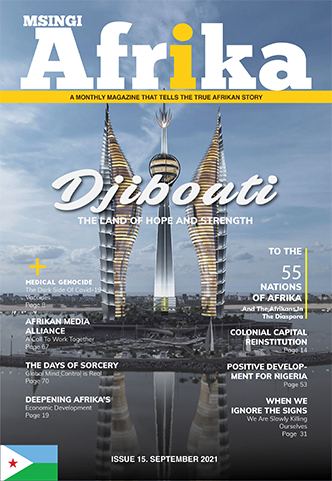NATION IN VIEW: DJIBOUTI
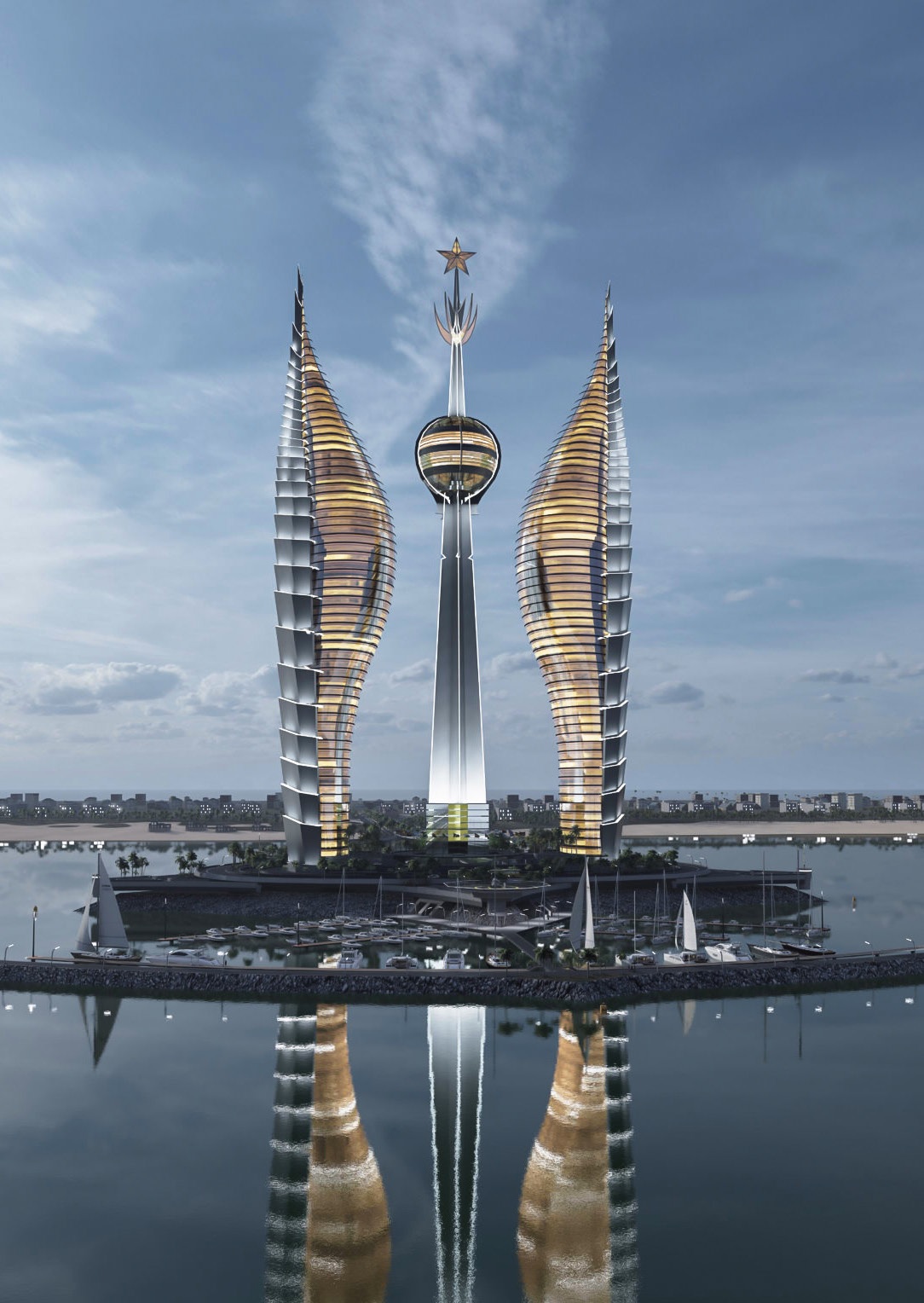
Samuel Phillips is a writer, graphic designer, photographer, songwriter, singer…
THE LAND OF HOPE AND STRENGTH
Hope is not just a positive mental attitude one has towards the future. It’s definitely beyond that.
Hope is that grounding on the inside, when there is a deep realization that one’s life has a deeper meaning in the Creator than whatever it may be that one is facing in the moment.
Hope is always connected to that which has been completed in God, from which one’s destiny takes its foundation and also that which is to come and for which one takes a stand to keep going. Hope is supposed to be trans-generational, because it is that knowing on the inside that keeps the wheels of progress going.
Hope is one indispensable factor in life that seems to be gradually fading away, especially with all the issues going on in our world. The rate of suicides we have been witnessing in the recent past, which have been largely due to depression, is quite alarming.
In it’s simplest form and personally, I think most cases of suicide are tied to the inability of the victims to see anything worth living for in the present and thus, the future. In other words, when there is no hope for anything good or worth living for in the future, when the eyes can no longer see, because the system and the environment around a person is saying all is lost, when one has given all that there is to give but with no corresponding returns for the efforts made, the next possible thing to do is either to keep going and trusting that all will be well, or just hang up all hope and give up.
But if you ask me, giving up is really boring. So we keep going.
For every issue of this magazine, I always pray to be guided in knowing which country we are featuring and what the word for that country will be. As it has been in many cases, I woke up one morning with this statement about Djibouti. It said, “Djibouti the land of hope and strength”.
With that, I knew this issue was about the tiny and beautiful nation of Djibouti.
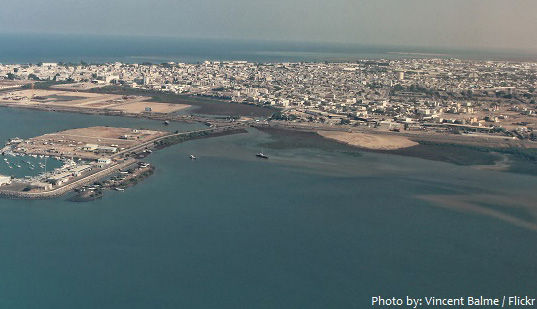
About Djibouti
Djibouti is a country in Northeast Africa. The official name of the country is the Republic of Djibouti.
It is bordered by Eritrea in the north, Ethiopia in the west and south, and Somalia in the southeast. The remainder of the border is formed by the Red Sea and the Gulf of Aden at the east.
Djibouti has two official languages: Arabic and French.
As of 1 January 2017, the population of Djibouti was estimated to be 905,618 people.
It is the 146th largest country in the world in terms of land area, with 23,200 square kilometers (9,000 square miles).
Djibouti City is the capital and largest city of Djibouti, which is named after it. It is located in the coastal Djibouti Region on the Gulf of Tadjoura. The city is known for its 19th-century architecture and the port at the entrance to the Red Sea.
Djibouti can be divided into three major geographic regions: a coastal plain, mountains behind the plain, and a plateau behind the mountains.
Mousa Ali is a 2,021 meters (6,631 feet) stratovolcano located on the tri-point of Ethiopia, Eritrea and Djibouti. The volcano is the highest point in Djibouti.
About 90 percent of Djibouti’s terrain is flat, barren desert land made up of volcanic rock.
The desert terrain of Djibouti is broken in places by salt lakes. The largest of these is Lac Assal, at 155 meters (509 feet) below sea level, it is the lowest point in Africa and the second-lowest elevation in the world. It is also the world’s saltiest body of water, with a concentration surpassing even that of the Dead Sea. Its water reaches temperatures of up to 57°C (135°F) in the summer.
The country’s flora and fauna live in a harsh landscape with forest accounting for less than one percent of the total area of the country.
The Danakil Desert is a lowland geothermal region, which covers much of western Djibouti. The Danakil Desert extends into Ethiopia and Eritrea. The area is known for its volcanoes and extreme heat, with daytime temperatures surpassing 50 °C (122 °F). The Danakil Desert is one of the lowest and hottest places on Earth.
Djibouti has 314 kilometers (195 miles) of coastline. Much of the coastline consists of white and gold, sandy beaches.
(Source: http://justfunfacts.com/)
Hope and strength for Djibouti
Like always, every word of encouragement given to any nation we feature in the issues of this magazine is a word to every nation of Afrika and Afrikans both home and in the diaspora.
No one needs reminding that there is a lot of pressure in our world right now and that Afrikan nations are not exempted from these pressures. So it comes as a refreshing message that we all can actually raise our heads up and say we have hope and strength in the fact that our lives are not a wasted dump on the earth, but a calculated and well-articulated plan, with a genuine purpose in the Creator that cannot fail.
So to Djibouti and the good people of Djibouti, it does not matter what you have had to endure over the years and even whatever you may be enduring right now, you are remembered. The news media is loaded with all manner of sad news about how Covid-19 has done some damage in your nation and the fear of death is real each day. But I pray for you that the good Lord, who made you a nation of people, will keep and guide you even in the midst of the troublesome days of pandemic.
I ask that you be strengthened in hope and power and to deal with each day with your heads lifted up above the pressures around you.
God bless the land and people of Djibouti.
What's Your Reaction?
Samuel Phillips is a writer, graphic designer, photographer, songwriter, singer and a lover of God. As an Afrikan content creator, he is passionate about creating a better image and positive narrative about Afrika and Afrikans. He is a true Afrikan who believes that the true potential of Afrika and Afrikans can manifest through God and accurate collaborations between Afrikans. Afrika is the land of kings, emperors, original wisdom, ancient civilizations, great men and women and not some road-side-aid-begging poor third world continent that the world finds joy in undermining.








